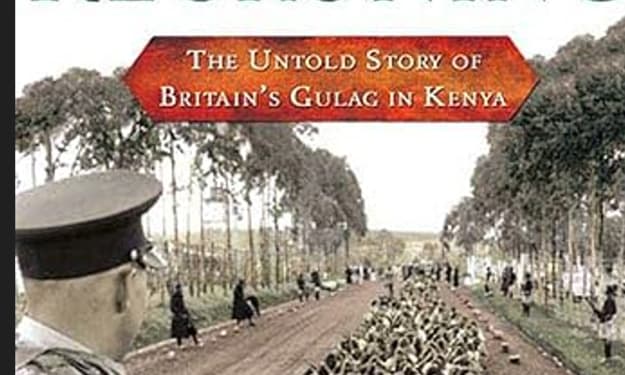Unveiling the Hidden Gems
10 Little-Known Facts about the Battle of Thermopylae

Introduction:
The Battle of Thermopylae, a historic clash between the Persian Empire and the Greek city-states in 480 BCE, is widely known for the valor and sacrifice of King Leonidas and the Spartan warriors. However, beyond the popular narrative, lie fascinating and lesser-known details that shed light on the complexity and significance of this ancient battle. This lesson aims to explore some intriguing and little-known facts about the Battle of Thermopylae, revealing a deeper understanding of this pivotal moment in history.
1. The Phocians' Secret Path:
While the narrow coastal pass of Thermopylae is renowned for its strategic advantage, it was not the sole route through which the Persian forces could have advanced. The Phocians, allies of the Greeks, were aware of a mountain path that bypassed the Persian position. They guided a contingent of Greek soldiers, led by the Trachinian general Hydarnes, to this secret path. Although this path ultimately failed to change the outcome of the battle, it highlights the complexities and secret maneuvers that took place behind the scenes.
2. Naval Engagement in the Saronic Gulf:
While the Battle of Thermopylae primarily focused on the land engagement, a naval battle was simultaneously unfolding in the Saronic Gulf. The Greek city-states, anticipating the Persian invasion, had formed a naval alliance known as the Hellenic League. Their fleet, under the command of the Athenian admiral Themistocles, engaged the Persian navy, disrupting their communication and supply lines. This naval battle showcased the interconnectedness of military efforts and the strategic planning employed by the Greek forces.
3. The Sacrifice of the Thespians:
While the Spartan warriors often take center stage in the story of Thermopylae, it is crucial to acknowledge the sacrifice of the other Greek soldiers who fought alongside them. The Thespians, a contingent of around 700 soldiers, bravely fought alongside the Spartans until the bitter end. Their refusal to abandon the battle exemplified the unwavering commitment and valor exhibited by multiple Greek city-states.
4. Xerxes' Tribute to Leonidas:
After the battle, Xerxes, the Persian king, ordered the decapitation of King Leonidas' body as a sign of disrespect. However, despite this act, Xerxes acknowledged Leonidas' bravery and leadership. He reportedly commanded his men to bury Leonidas with the highest honors, recognizing the fallen king as a worthy adversary.
5. The Epitaphs at Thermopylae:
Monuments and epitaphs were erected to commemorate the brave warriors who fought and perished at Thermopylae. Among them, the epitaph for the Spartans read, "Stranger, tell the Lacedaemonians that we lie here, obedient to their laws." This epitaph speaks to the enduring legacy of the Spartan warriors and their unwavering commitment to their homeland.
6. The Role of Greek Allies:
While the Spartans and their renowned warriors, the hoplites, are often associated with the Battle of Thermopylae, it is crucial to recognize the contribution of other Greek allies. The battle was a joint effort involving soldiers from various city-states, including Corinthians, Thebans, Phocians, and others. These diverse groups united under a common cause, exemplifying the strength that can be achieved through collaboration and solidarity.
7. The Strategic Importance of the Hot Springs:
The name "Thermopylae" itself derives from the Greek words meaning "hot gates." This designation is attributed to the natural hot springs found in the region. These hot springs played a significant role during the battle as they provided a natural advantage to the Greek forces. The thermal vents emitted sulfurous fumes that made it difficult for the Persian soldiers to breathe, further hindering their attempts to breach the Greek defenses.
8. The Relevance of Oracle Prophecies:
The Greek city-states often sought guidance from oracles before engaging in battles or making significant decisions. Prior to the Battle of Thermopylae, both the Persian and Greek sides consulted various oracles. The Spartans, in particular, sought advice from the Oracle of Delphi, who proclaimed that either Sparta would be destroyed, or a king from the house of Heracles would perish. This prophecy influenced the decision of King Leonidas and the Spartans to make a stand and fight to the death.
9. Persian Use of Captured Greek Ships:
During the naval engagement in the Saronic Gulf, the Persians successfully captured several Greek ships. Recognizing the value of these vessels, they repurposed them, fitting them with their own Persian crews. This demonstrates the Persians' resourcefulness in utilizing captured resources to bolster their naval strength.
10. The Legacy of the Battle:
The Battle of Thermopylae left an indelible mark on history, inspiring countless tales, poems, and artistic depictions. It has become a symbol of resistance against overwhelming odds and a testament to the power of human determination. The battle's impact reverberated through the centuries, influencing subsequent military strategies and inspiring the notion that even in the face of defeat, valor and heroism can endure.
Conclusion:
The Battle of Thermopylae holds a wealth of little-known facts that shed light on its complexities, strategies, and lasting legacy. By delving deeper into these hidden gems, we gain a more comprehensive understanding of the battle's significance beyond its popular narrative. The contributions of Greek allies, the role of oracles, the strategic advantages, and the sacrifices made by both sides all weave together to form a tapestry of historical richness. The Battle of Thermopylae stands as a timeless reminder of the resilience, bravery, and enduring spirit displayed by those who fought to defend their ideals.
About the Creator
Deon Burton
Marine turned aspiring author looking to find his niche in storytelling.
I also want to improve myself so some feedback would be wonderful.






Comments
There are no comments for this story
Be the first to respond and start the conversation.